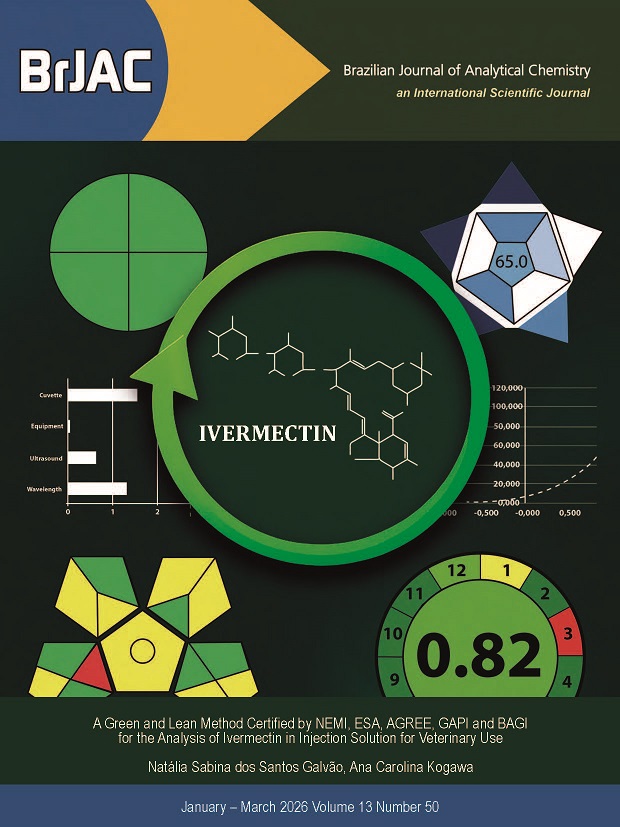
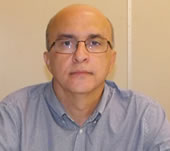
52nd BrJAC Webinar: Microwave-Assisted Sample Preparation for Elemental Analysis: Views and Trends
December 17, 2025 / 10 a.m.
Brasília time (BRT) (GMT-3)
Speakers: Prof. Dr. Joaquim de Araújo Nóbrega
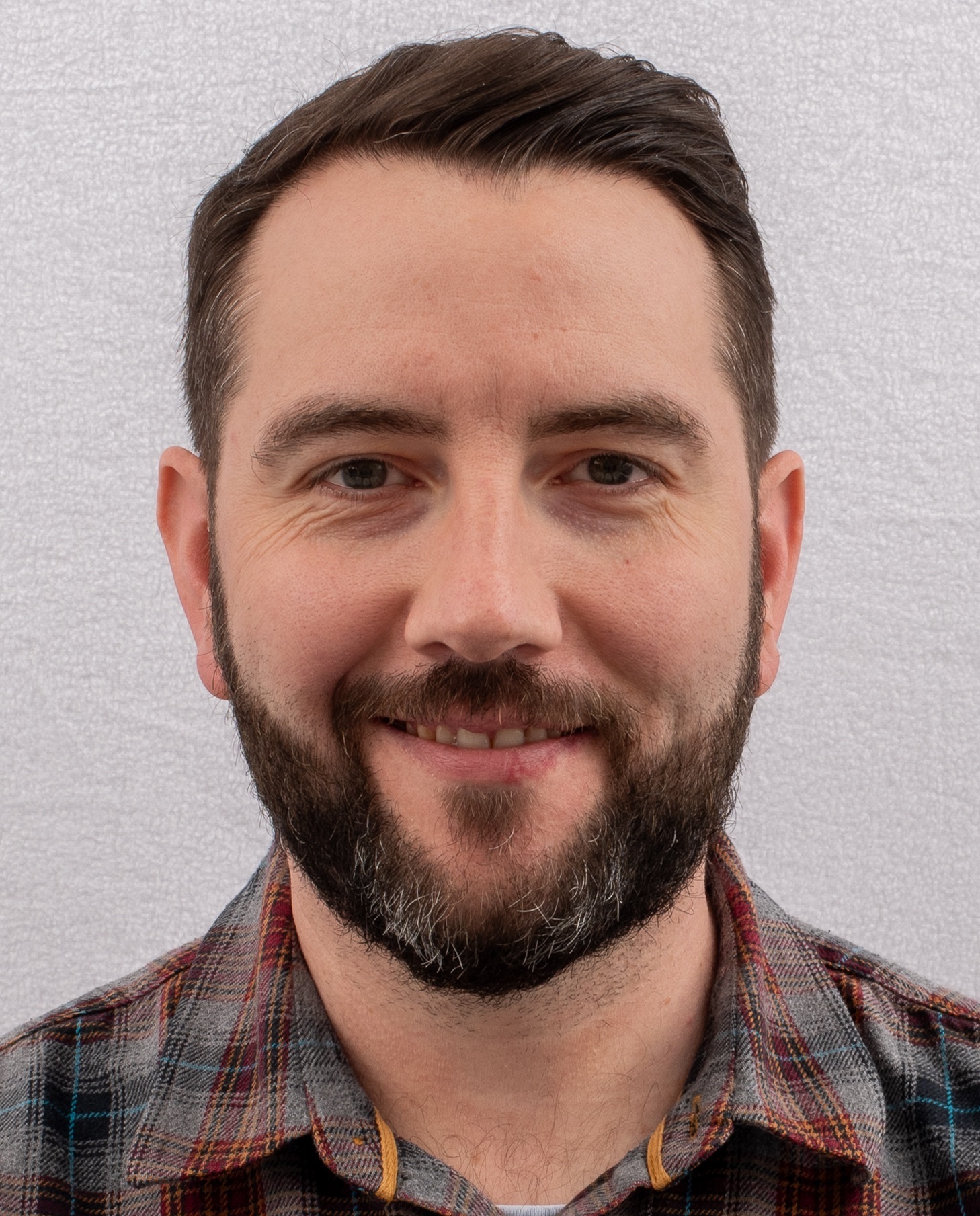
51st BrJAC Webinar: Quantitative Approaches to Understand the Role of Zinc Dyshomeostasis on Thrombotic Risk
November 4, 2025 / 10 a.m.
Brasília time (BRT) (GMT-3)
Speakers: Dr. Alan James Stewart
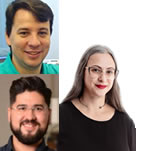
50th Webinar: 3rd Roundtable Discussion: Omics and Multiomics: Achievements and Challenges
October 10, 2025 / 10 a.m.
(Brasilia time)
Speakers: Prof. Dr. Alessandra Sussulini, Prof. Dr. Hugo M. Santos, Prof. Dr. Fabio Cesar Gozzo
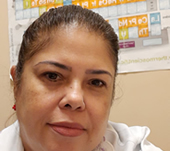
49th Webinar: Analytical Chemistry in the Amazon context: Challenges and potentialities
September 26, 2025 / 10 a.m.
(Brasilia time)
Speaker: Prof. Dr. Kelly das Graças Fernandes Dantas
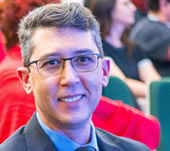
48th Webinar: Understanding Common Misconceptions in the Validation of Chemometric Models
August 22, 2025 / 10 a.m.
(Brasilia time)
Speaker: Prof. Dr. Jez Willian B. Braga
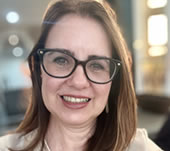
47th Webinar: Separation and Resolution in Liquid Chromatography: multidisciplinary applications in biological, environmental, and food samples
July 11, 2025 / 10 a.m.
(Brasília time)
Speaker: Prof. Dr. Carla Beatriz Grespan Bottoli
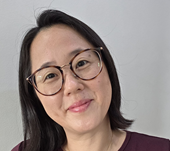
46th Webinar: Food enrichment by cultivation: nutritional quality and food safety
June 6, 2025 / 10 a.m.
(Brasilia time)
Speaker: Prof. Dr. Juliana Naozuka
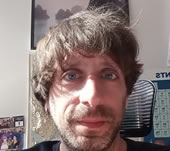
45th BrJAC Webinar: Single Particle ICP-MS: state-of-the-art and environmental applications
May 23, 2025 / 10:00 a.m.
(Brasília time)
Speaker: Prof. Dr. Javier Jimenez Lamana
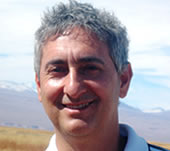
44th Webinar: Electrochemical Detection in Analytical Chemistry: Advantages and Challenges
April 25, 2025 / 10:00 a.m.
(Brasília time)
Speaker: Prof. Dr. Mauro Bertotti
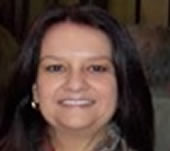
43rd Webinar: Analytical Chemistry and Archaeometry
March 28, 2025 / 10:00 a.m.
(Brasília time)
Speaker: Prof. Dr. Mariela Pistón
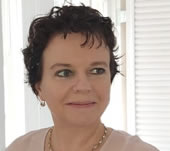
42nd Webinar: Innovative Analytical Approaches for Sustainable Chemistry: Non-Destructive Techniques, Chemometrics, and Bioenergy Applications
February 14, 2025 / 10:00 a.m.
(Brasília time)
Speaker: Prof. Dr. Fabiola Manhas Verbi Pereira
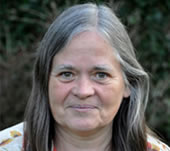
41st Webinar: Analytical chemistry as a provider of trustworthy data in times of science denial — Examples of trace element analysis in the environment
December 13, 2024 / 10:00 a.m.
(Brasília time)
Speaker: Prof. Dr. Montserrat Filella
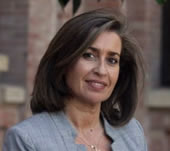
40th Webinar: Contribution of Natural Materials to Sustainable Sample Preparation
November 08 / 10:00 a.m.
(Brasília time)
Speaker: Prof. Dr. Soledad Cárdenas

39th Webinar: 2nd Round Table Discussion: Bioanalytical Chemistry - Contextualization, Achievements and Challenges
October 18 / 10:00 am
(Brasília time)
Speakers: Prof. Dr. Marilia Oliveira Fonseca Goulart / Prof. Dr. Emanuel Carrilho / Prof. Dr. Marcone Augusto Leal de Oliveira
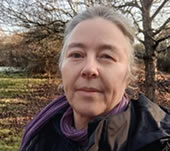
38th Webinar: Metallomics, metalloproteomics and complementary approaches to study zinc in biological systems
September 27 / 10:00 a.m.
(Brasília time)
Speaker: Prof. Dr. Claudia A. Blindauer
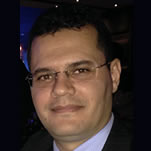
37th Webinar: Development of solid-phase and liquid-liquid microextraction methods based on sustainable and green analytical approaches
August 9 / 10:00 a.m.
(Brasília time)
Speaker: Prof. Dr. César Ricardo Teixeira Tarley
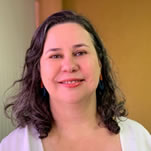
36th Webinar: Psychoactive Substances: Global Landscape and Analytical Challenges
July 12 / 10:00 a.m.
(Brasília time)
Speaker: Prof. Dr. Clésia Cristina Nascentes
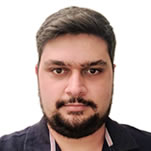
35th Webinar: Affordable Diagnostic Methods for Infectious Disease Testing and Surveillance
June 7 / 10:00 a.m.
(Brasília time)
Speaker: Prof. Dr. William Reis de Araujo
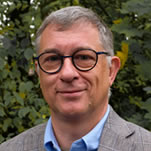
34th Webinar: ICP-Mass Spectrometry in the Biomedical Sciences: Work Horse or Race Horse?
May 3 / 10:00 a.m.
(Brasília time)
Speaker: Prof. Dr. Frank Vanhaecke

33rd Webinar: Advanced X-ray analytical techniques with synchrotron radiation applied to research studies on agro-environmental sciences, biology, and nanotoxicology
April 19 / 10:00 a.m.
(Brasília time)
Speaker: Dr. Carlos Alberto Pérez
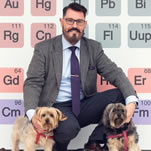
32nd Webinar: Harnessing Inorganic Nanoparticles for Innovative Applications
Mar. 22 / 2:00 p.m.
(Brasília time)
Speaker: Prof. Dr. Carlos Lodeiro y Espiño (FRSC)
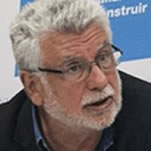
31st Webinar: Smoking an Analytical Chemistry Perspective
Feb. 09 / 10:00 am
(Brasília time)
Speaker: Prof. Dr. Miguel de la Guardia
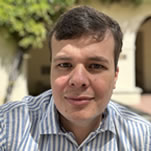
30th Webinar: Solving Analytical Chemistry’s Complex Puzzles with Mass Spectrometry
Dec. 15 / 10:00 am
(Brasília time)
Speaker: Prof. Dr. Boniek Gontijo Vaz
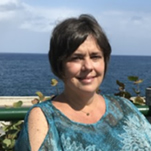
29th Webinar: Metrology Platforms for the Characterisation of Nanomaterials to Support Existing Regulations
Nov. 24 / 10:00 am
(Brasília time)
Speaker: Prof. Dr. Heidi Goenaga-Infante
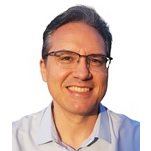
28th Webinar: Exploring Magnetic Ionic Liquids for Trace Elements Preconcentration and Speciation Analysis
Oct. 20 / 10:00 am
(Brasília time)
Speaker: Prof. Dr. Rodolfo G. Wuilloud
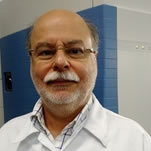
27th Webinar: Some Applications of Atomic Spectrometry for Nutritional, Medicine and Forensic Studies
Sept. 15 / 10:00 am
(Brasília time)
Speaker: Prof. Dr. Ricardo E. Santelli

26th Webinar: Quo vadis, Analytical Chemistry?
August 11 / 02:00 pm
(Brasília time)
Speakers: Prof. Dr. Maria Valnice B. Zanoni / Prof. Dr. Emanuel Carrilho / Prof. Dr. Jailson B. de Andrade
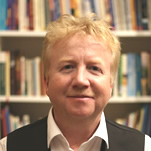
25th Webinar: Elemental Bioimaging at Micro and Nanoscale
July 07 / 10:00 am
(Brasília time)
Speaker: Prof. Dr. Dirk Schaumlöffel
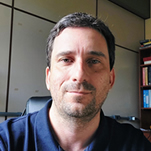
24th Webinar: Photochemical vapor generation for elemental analysis: The road so far…
May 26 / 10:00 am
(Brasília time)
Speaker: Prof. Dr. Daniel L. G. Borges
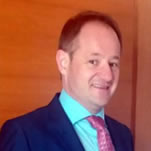
23rd Webinar: 3D-printed microFIA: The new generation of flow analysis
April 28 / 10:00 am
(Brasília time)
Speaker: Prof. Dr. Manuel Miró
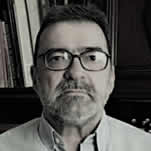
22nd Webinar: A Brief History of Electroanalysis in the World and in Brazil
March 10 / 10:00 am
(Brasilia time)
Speaker: Prof. Dr. Orlando Fatibello-Filho
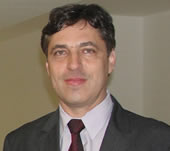
21st Webinar: Analysis of High Carbon Content Samples: Challenges and Options
Dec 16 / 10:00 am
(Brasilia time)
Speaker: Prof. Dr. Érico M. M. Flores
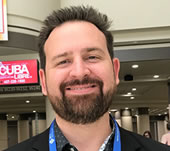
20st Webinar: The use of 3D Printing for Sensors Development
Nov 25 / 10:00 am
(Brasilia time)
Speaker: Prof. Dr. Bruno Campos Janegitz
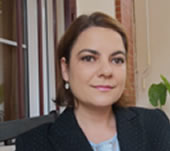
19th Webinar: Omic and Meta-omic Methodologies to Delve into the Metals-Metabolites-Microbiota Intertwined Mechanisms
Oct 31 / 02:00 pm
(Brasilia time)
Speaker: Prof. Dr. Tamara García-Barrera
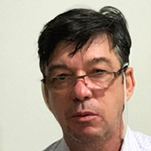
18th Webinar: In situ fractionation and speciation analysis of waters using the Diffusive Gradients in Thin films (DGT) technique: from classical to recent approaches
Sep 23 / 10:00 am
(Brasilia time)
Speaker: Prof. Dr. Amauri Antonio Menegário
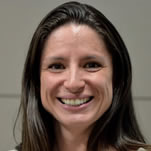
17th Webinar: Assessing the Fate and Impacts of Pesticides in the Environment – Key Points from Chemistry Perspectives
Aug 26 / 02:00 pm
(Brasilia time)
Speaker: Prof. Dr. Cassiana Montagner
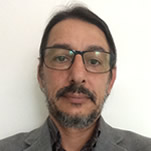
16th Webinar: 3D Printing as a Powerful Tool for the Fabrication of Microfluidic Analytical Devices
Jun 27 / 02:00 pm
(Brasilia time)
Speaker: Prof. Dr. Jose Alberto Fracassi da Silva
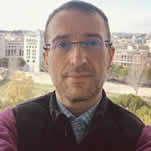
15th Webinar: Challenges and Opportunities for Characterization of Fine Particulate Matter Indoors
May 19 / 02:00 pm
(Brasilia time)
Speaker: Prof. Dr. Victor G. Mihucz
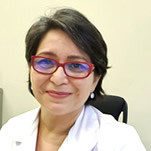
14th Webinar: Forensic Analytical Chemistry and its Relevance in the Chain of Custody: The Importance of Science in Ensuring Justice
April 8, 2022, 02:00 pm
(Brasilia time)
Speaker: Prof. Dr. Márcia Mesquita da Veiga
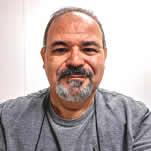
13th Webinar: Headspace Solid Phase Microextraction Applied to Analysis of Compounds with Low Volatility
Dec 17 / 02:00 pm
(Brasilia time)
Speaker: Prof. Dr. Fabio Augusto
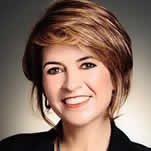
12th Webinar: Advances for the Elemental Determination by Mass Spectrometry Detection Following the Green Chemistry Recommendation
Nov 26 / 02:00 pm
(Brasilia time)
Speaker: Prof. Dr. Márcia Foster Mesko
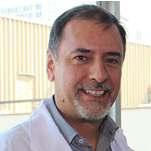
11th Webinar: Fundamentals and eco-efficient applications of rotating-disk sorptive extraction
Oct 26 / 02:00 pm
(Brasilia time)
Speaker: Prof. Dr. Pablo Richter

10th Webinar: Chemometrics applied to Liquid and Supercritical Fluid Chromatography
Sep 10 / 02:00 pm
(Brasilia time)
Speaker: Prof. Dr. Márcia C. Breitkreitz
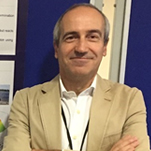
9th Webinar: From Flow Injection to Microfluidics: Our Contribution to Food and Environmental Analysis
Jul 30 / 02:00 pm
(Brasilia time)
Speaker: Prof. Antônio Rangel
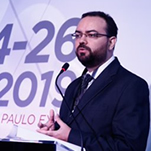
8th Webinar: Turning Paper and other Low-Cost Materials into Analytical Sensor Devices for In-Field Applications
Jun 25 / 02:00 pm
(Brasilia time)
Speaker: Prof. Dr. Thiago R.L.C. Paixão
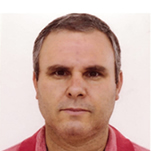
7th Webinar: Restricted Access Materials in Biological Sample Preparation for the Determination of Metals and Organic Molecules
May 26 / 02:00 pm
(Brasilia time)
Speaker: Prof.Dr. Eduardo Figueiredo
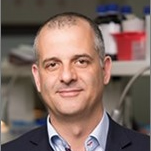
6th Webinar: Analytical Chemistry Driven Personalised Medicine
April 30 / 02:00 pm
(Brasilia time)
Speaker: Prof. Dr. Jose L. Capelo
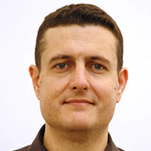
5th Webinar: Re-Imagining Standard Additions and InternalStandardization for More Efficient Calibration Methods
March 5 / 03:00 pm
(Brasilia time)
Speaker: Prof. Dr. George L. Donati
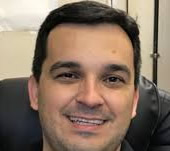
4th Webinar: Portable Analytical Tools for Bioanalytical and Forensic Applications
November 26 / 02:00 pm
(Brasilia time)
Speaker: Prof. Wendell K. T. Coltro
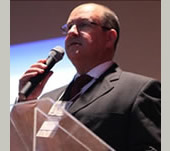
3rd Webinar: Analytical Strategies for Environmental and Ecotoxicological Studies
October 30 / 02:00 pm
(Brasilia time)
Speaker: Prof. Dr. Marco T. Grassi
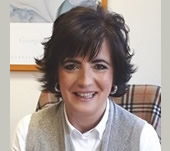
2nd Webinar: Analysis of Clinical Biomarkers by ICP-MS: From Speciation to Single-Cell Approaches
Recorded: 25 September 2020
Speaker: Prof. Dr. Maria Montes
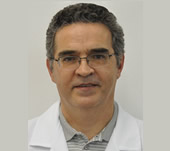
1st Webinar: Development and Application of Methods for the Determination of Residues and Contaminants in Food and Environmental Samples
Recorded: 6 August 2020
Speaker: Prof. Dr. Renato Zanella
Joaquim A. Nóbrega received his Ph.D. from the State University of Campinas (1992) and completed his postdoctoral training with Ramon Barnes (University of Massachusetts, Amherst, MA, 1996) and with Bradley Jones (Wake Forest University, Winston-Salem, NC, 2003). He is Full Professor in the Department of Chemistry, Federal University of São Carlos (São Carlos, São Paulo State, Brazil). His research interests are sample preparation for inorganic analysis, atomic absorption spectrometry, atomic emission spectrometry, and inductively coupled plasma mass spectrometry. He co-authored several papers in microwave-assisted sample preparation and recently updated a chapter on “Microwave-Assisted Sample Preparation for Spectrochemistry” (Encyclopedia of Analytical Chemistry, 2024, John Wiley & Sons).
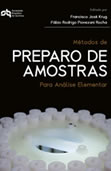
Mariny Fabiéle Cabral Coelho, MSc
MG Ambiental, Pouso Alegre, MG, Brazil
Book: Métodos de Preparo de Amostras para Análise Elementar by F.J. Krug and Fábio R.P. Rocha (Eds.)
Alan James Stewart, BSc (Hons), PhD, FRSB, FRSC, is currently a Reader in Molecular Medicine at School of Medicine, University of St Andrews, St Andrews, Scotland, United Kingdom.
Education/Qualifications: PhD in Chemistry, School of Chemistry, University of Edinburgh, Edinburgh, UK (1999-2003). BSc(Hons) in Biochemistry, University of Edinburgh, Edinburgh, UK (1995-1999).
Professional history: Senior Lecturer, University of St Andrews (2016-2021); Lecturer, University of St Andrews (2009-2016); MRC Career Development Fellow, Queen’s Medical Research Institute, Edinburgh, Edinburgh, UK (from 2006-2009); Postdoctoral Fellow, Roslin Institute, Midlothian, UK (from 2003-2005).
Other Appointments and Affiliations: Deputy Chair and Executive Board Member of Scottish Universities Life Sciences Alliance (SULSA; since 2023). Deputy Chair of the Int. Union of Crystallography (IUCr) Commission on Biol. Macromolecules (since 2023). Tenovus Scotland National Scientific Advisory Committee (since 2023).
Honours and Awards: Elected Fellow of the Royal Society of Chemistry (2022); Elected Fellow of the Royal Society of Biology (2020); Guest Professor at Northwest Plateau Institute of Biology, Chinese Academy of Sciences, Xining, China (2017); BBSRC New Investigator Award (2012).
Publication summary and metrics (Source: Google Scholar (accessed 2/10/2025): Total publications: 105; Citations: 7,092; h-index: 42; i10-index: 82.
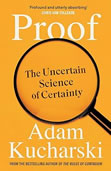
Cristiane Renata Schmitt, PhD
Researcher at GEPAM, Institute of Chemistry, University of Campinas, SP, Brazil
Book: Proof: The Uncertain Science of Certainty By Adam Kucharski
Prof. Dr. Alessandra Sussulini
Alessandra Sussulini is an Associate Professor (MS-5.1) in the Department of Analytical Chemistry at the Institute of Chemistry, University of Campinas (UNICAMP), and the head of the Laboratory of Bioanalytics and Integrated Omics (LaBIOmics). She supervises students in the Graduate Programs in Chemistry and Pharmaceutical Sciences at UNICAMP. She holds a PhD in Natural Sciences from UNICAMP, with a sandwich period at the Max Planck Institute for Experimental Medicine (Germany). She completed postdoctoral research at the Butantan Institute and the Research Center Jülich (Germany). Her current main research areas include the integration of omics sciences based on mass spectrometry (metabolomics, lipidomics, proteomics, and metallomics) for the study of neuropsychiatric diseases, molecular mechanisms of natural psychedelics, and the characterization of agroecological foods. She is the author of more than 60 peer-reviewed scientific articles, 9 book chapters, and editor of a book on metabolomics published by Springer Nature in 2017. Among the awards she has received is the Academic Recognition Award in Human Rights from UNICAMP and the Vladimir Herzog Institute in 2023. She has been a CNPq Productivity Fellow, Level 2, since 2023. She has supervised 10 doctoral theses, 11 master's theses, 3 postdoctoral projects, and 13 scientific initiation projects.
Prof. Dr. Hugo M. Santos
Hugo M. Santos began his career in proteomics in 2007, embarking on a joint PhD program in Biochemistry at NOVA University Lisbon (Portugal) and the Turku Centre for Biotechnology in Finland, where he worked with state-of-the-art mass spectrometry instrumentation applied to biomedical research. He then pursued postdoctoral training, first at the University of Vigo (2010–2011) and subsequently at the Institute of Biomedicine and Biotechnology in Barcelona (2011–2012), advancing biomedical applications of mass spectrometry and translational research. In 2013 he returned to NOVA University Lisbon to continue his work in Biological Mass Spectrometry, where he is currently an Assistant Researcher at LAQV-REQUIMTE. A Member of the Royal Society of Chemistry, his scientific interests focus on the identification and structural characterization of molecules involved in complex biological processes and the monitoring of their abundance to gain insights into underlying molecular mechanisms, as well as on nano-proteomics and nanomedicine, the application of chemosensors to the detection and quantification of metals, and the mass spectrometry analysis of organic molecules, metal complexes, and supramolecular systems. He has authored over 100 peer-reviewed publications in journals such as Communications Medicine, BMC Medicine, Analytical Chemistry, and Talanta. To date, he has supervised six PhD students to completion and is currently mentoring four others.
Prof. Dr. Fabio Cesar Gozzo
Fabio Cesar Gozzo was a researcher at LNBio/CNPEM from 2004 to 2008. In 2006, he began his career at the Institute of Chemistry at Unicamp, where he is currently a full professor. He is a specialist in mass spectrometry applied to proteins, proteomics, protein structure, and interactions. Throughout his career, he has developed several advanced mass spectrometry approaches involving cross-linking mass spectrometry (XL-MS), hydrogen/deuterium exchange (HDX), and ion mobility spectrometry (IMS).
In addition to new experimental approaches, Prof. Fabio Gozzo’s group has made significant contributions to the development of software for structural proteomics, having been involved in the development of more than seven programs in these areas. His works have been published in prestigious journals such as Nature Chemical Biology, Nature Methods, and Nature Communications.
Prof. Fabio has also served as the Coordinator of the “São Paulo Proteomics Network,” the Brazilian representative to the International Mass Spectrometry Society (IMSS), a board member of the Brazilian Mass Spectrometry Society (BrMASS), and the Coordinator of the “Interest Group in Cross-Linking/Mass Spectrometry” of the American Society for Mass Spectrometry (ASMS). He is currently conducting research on large-scale protein-protein interaction mapping within the cellular environment.
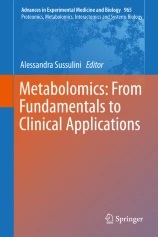
Mariana Feitosa Custódio
PhD candidate at the Institute of Chemistry, University of Campinas (Unicamp), SP, Brazil
Book: Metabolomics: From Fundamentals to Clinical Applications, by Alessandra Sussulini (Editor)
Kelly das Graças Fernandes Dantas is a Full Professor at the Institute of Exact and Natural Sciences, Federal University of Pará, Belém, Pará, Brazil. She graduated in Chemistry from the Federal University of Viçosa (1999), Master in Chemistry (Analytical Chemistry) from the São Paulo State University (2001), Ph.D. in Science (Analytical Chemistry) from the Federal University of São Carlos (2005) with a sandwich period (2004) at the Faculty of Physical and Analytical Chemistry at the University of Oviedo in Spain, and postdoctoral from the Federal University of São Carlos (2006). Currently, she is CNPq PQ-2 productivity, Vice-Director of the Analytical Chemistry Division of the Brazilian Chemistry Society, member of the National Institute on Science and Technology of Molecular Science (INCT-CiMol), and coordinator of the Applied Analytical Spectrometry Group (GEAAp). Dr. Dantas has published more than 60 scientific articles and supervised around 41 graduates, 18 Master’s, 11 Ph.D., and 2 Post-Doc students. She has experience in Analytical Chemistry and her main research topics are sample preparation, emission and atomic spectrometry, chromatographic techniques, and speciation applied to foods, biological, and environmental samples of the Amazon region.
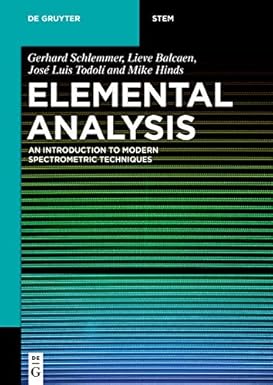
Ricardo Santos Silva
PhD candidate in Chemistry at the Federal University of ABC in Santo André, São Paulo, Brazil
Book: Elemental Analysis: An Introduction to Modern Spectrometric Techniques by Gerhard Schlemmer, Lieve Balcaen, José Luis Todolí and Michael W. Hinds
Jez W. B. Braga is a Full Professor at the Institute of Chemistry of the University of Brasília (UnB). Graduated in Chemistry from the State University of Goiás, Prof. Jez holds a master’s and a PhD in Analytical Chemistry from the State University of Campinas, as well as a postdoctoral degree from the Center for Nuclear Energy in Agriculture (CENA/USP), including external research at the National University of Rosario (Argentina). Prof. Jez has extensive experience in teaching and research, with a focus on chemometrics and forensic chemistry. His work primarily involves the analysis of forensic samples—such as drugs, documents, beverages, wood, explosives, fuels, pharmaceuticals, and food—along with first- and second-order multivariate calibration, figures of merit determination, method validation, multivariate curve resolution, chromatographic separation techniques (HPLC), and spectroscopic methods (UV-VIS, IR, NIR, and molecular fluorescence). He has published over 70 scientific articles, authored four book chapters, and participated in numerous national and international conferences.
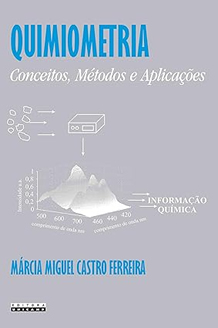
Márcia Helena Cassago Nascimento, PhD
Postdoctoral Researcher in the Postgraduate Program in Chemistry at the Federal University of Espírito Santo, ES, Brazil
Book: Quimiometria: Conceitos, métodos e aplicações, by Márcia Miguel Castro Ferreira (Author)
Professor Carla Bottoli holds a degree in Industrial Chemistry from the Federal University of Santa Maria (1996), a Ph.D. in Chemistry from the University of Campinas (2002), and completed a postdoctoral fellowship at the same institution (2002–2004). She carried out a research internship at the Institute of Nuclear Sciences at the National Autonomous University of Mexico (2005) and served as a Visiting Scholar in the Department of Chemistry at the University of Michigan, USA (2023–2024). She works in the field of Analytical Chemistry, with a focus on Separation Methods. She is the coordinator of the Liquid Chromatography Research Laboratory (NovaCrom), and her research involves the development and validation of analytical methods and sample preparation procedures for biological and plant matrices using liquid chromatography coupled to mass spectrometry. More recently, she has focused on the development of analytical methods for targeted metabolomics in biological fluids. She was Associate Coordinator of the Research Committee at the Institute of Chemistry – UNICAMP and currently serves as a member of the Research Integrity Committee at UNICAMP. She has been an active member of the Brazilian Chemical Society since 1998, a member of the Latin American Metabolic Profiling Society, and a researcher at the National Institute of Science and Technology in Bioanalytics (INCT-Bioanalítica).
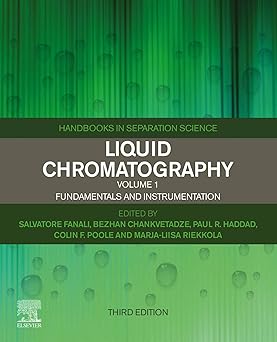
Larissa De Jesus Souza
Industrial Chemistry undergraduate student at the Federal University of Sergipe, SE, Brazil
Book: Liquid Chromatography: Fundamentals and Instrumentation by Salvatore Fanali, Bezhan Chankvetadze, Paul R. Haddad, Colin Poole, Marja-Liisa Riekkola (Eds.)
Juliana Naozuka is Professor at the Federal University of Sao Paulo (UNIFESP), Diadema campus. She holds a bachelor’s degree in chemistry from the University of Sao Paulo (2001), a master's degree (2004), a doctorate (2008) in Chemistry (Analytical Chemistry) from the University of Sao Paulo and a post-doctorate (2010) from the Federal University of ABC (UFABC). She has experience in the field of analytical chemistry, with an emphasis on atomic absorption and emission spectrometry, mainly working on the following topics: determination of trace elements and chemical speciation in food and biological materials. Coordinates the LAEQ (Chemical Speciation Analysis Laboratory) and is vice coordinator of the PPGQ-CTS (Graduate Program in Chemistry - Sustainability Science and Technology).
The book Environmental Impacts of Metallic Elements: Speciation, Bioavailability and Remediation
By Muhammad Aqeel Ashraf, Maliha Sarfraz, Rizwana Naureen, Mohamedreza Gharibreza (Springer, 2015) will be raffled among the attendees.

Yuri Guimarães Dias, PhD in Chemistry
Faculty of Science and Technology in Engineering - FCTE
University of Brasília, Campus Gama, DF, Brazil
Book: “Biodisponibilidade de Nutrientes” by Silvia M. Franciscato Cozzolino
Javier Jimenez Lamana is currently Assistant Professor at the Institute of Analytical Sciences and Physico-Chemistry for Environment and Materials (IPREM), Université de Pau et des Pays de l’Adour, France. Education: Licenciatura in Chemistry (2008), University of Zaragoza, Spain; Advanced Studies Diploma in Analytical Chemistry (2010), University of Zaragoza, Spain.PhD with “Cum Laude” and “European Doctor” labels, and awarded with the title of “Extraordinary Doctorate Award (in the Macro Area of Sciences)” (2014). University of Zaragoza, Spain. Research Record: 43 publications in international peer-reviewed journals and 4 book chapters, 2994 citations, h-index of 21. (Google Scholar, visited on 7th April 2025) I have also been the author or co-author of 44 conference presentations, including 22 oral presentations and two keynotes as speaker. I have been an invited speaker in 5 major international conference.

Jefferson Rodrigues de Souza, PhD
Associate Professor at the State University of Northern Fluminense Darcy Ribeiro, Campos, RJ, Brazil
Book: “Environmental Nanopollutants: Sources, Occurrence, Analysis and Fate” Edited by Joanna Szpunar; Javier Jiménez-Lamana
Mauro Bertotti received a B.Sc. from the Institute of Chemistry of the University of São Paulo in 1983 and became a postgraduate student at the same institution, where he received his M.Sc. (1986) and Ph.D. (1991) under the supervision of Dr. Roberto Tokoro. For a year (1995/96), he was a postdoctoral fellow in the group of Professor Derek Pletcher at the University of Southampton, UK. At the University of São Paulo he has remained throughout his career, where he was appointed Full Professor in 2008. He was the Head of the Department of Fundamental Chemistry from 2014 to 2018. His research interests are Electrochemical Sensors, Microelectrodes and Scanning Electrochemical Microscopy. He has published around 200 papers in peer reviewed journals, given seminars in international conferences and supervised several PhD students and post docs.

Mesaque Carvalho França, MSc
Doctoral candidate in Chemistry at the Federal University of Ceará, Brazil
Book: “Métodos Eletroanalíticos: Conceitos, Experimentos e Aplicações” By: Nelson Ramos Stradiotto, Hideko Yamanaka, Maria Valnice Boldrin Zanoni and Maria Del Pilar Taboada Sotomayor
Mariela Pistón was born in Uruguay in 1972. She completed her PhD in chemistry in the Faculty of Chemistry of the Universidad de la República (UdelaR), Montevideo, Uruguay. She started in 1996, being still a graduate student, as an honorary collaborator in the Laboratory of Analytical Chemistry and since then he has worked in the Faculty of Chemistry until reaching the actual position of Full Professor. She worked in collaboration with research groups from Brazil, Spain, Portugal and Czech Republic. Her research interests include Atomic Spectroscopy, Sample Preparation, Instrumentation and Automation in Analytical Chemistry, Green Analytical Chemistry, Archaeometry and Analytical Toxicology.Currently she leads the research group -Trace element analysis and development of simple strategies for sample preparation (GATPREM). https://sites.google.com/site/elemtrazayprepmuestras Some ongoing projects that she leads are related to the evaluation of trace element levels in food and food safety in terms of inorganic contamination mainly with arsenic, cadmium and lead and its impact in human health. Another topic of interest is the exploration of improvements in the capabilities of Microwave Inducted Plasma Atomic Emission Spectroscopy (MP-AES) and EDXRF for trace analysis using micro dispersive magnetic extraction. She has published over 70 peer reviewed papers (ORCID https://orcid.org/0000-0002-6762-5852) and directed several PhD and MSc theses.She worked as co-chair in the organization of four editions of the Uruguayan Congress of Analytical Chemistry since 2009 to 2016, one of them was held together with the 5th Iberoamerican Congress of Analytical Chemistry (CIAQA) in Montevideo with more than 600 participants. She is also member of the International Medical Geology Association (IMGA), “Uruguay Chapter” and delegate of the Faculty of Chemistry to the CODEX- Food Safety, Uruguayan sub-committee. From 2017 to 2021 member of the Analytical Chemistry Division (V) IUPAC, and NR member of the IUPAC (2023-2024).Currently member of the Council of the Faculty of Chemistry and alternate Dean (Universidad de la República).

Luis Gustavo Sousa Silva
Student of the Department of Chemistry at the Federal University of Piauí, Terezina, PI, Brazil
Book: "Analytical Archaeometry: Selected Topics – 1st Edition" By Howell G. M. Edwards and Peter Vandenabeele (Eds.)
Fabiola Manhas Verbi Pereira is Associate Professor at the São Paulo State University (UNESP), Institute of Chemistry, Araraquara (SP, BRA). She heads the Group on Alternative Analytical Approaches (GAAA), where she conducts cutting-edge research focused on non-destructive techniques and chemometrics (data science), with an emphasis on innovative spectroscopies such as XRF and LIBS. These techniques, which integrate sustainable and direct analysis on solid samples, are applied in a variety of contexts, from the agri-food sector to bioenergy. Academic background: B.S. Chemistry (1999) from Universidade Federal de São Carlos (UFSCar, São Carlos, SP, BRA).M.Sc. Chemistry (2003) from Universidade Estadual de Campinas (UNICAMP, Campinas, SP).Ph.D. Sciences (2007) from Universidade Estadual de Campinas (UNICAMP, Campinas, SP). Postdoc at Embrapa Instrumentação (São Carlos, SP, 2013), Dalhousie University (Halifax, Canada, 2011) and Idaho State University (Pocatello, United States, 2018).

Lorhaine Bernardes de Lima
Universidade Federal Rural do Rio de Janeiro, RJ, Brasil
Book: "Quimiometria: Conceitos, Métodos e Aplicações" By Ferreira, M. M. C. (Author)
Montserrat Filella is a research associate at the Department F.-A. Forel of the University of Geneva (Switzerland). She is an analytical chemist by training. Her main research interests focus on understanding the physicochemical processes that regulate the behaviour of chemical compounds in environmental compartments. Her initial work focused mainly on the acquisition and preservation of kinetic and thermodynamic data and the study of colloids and natural organic matter in natural waters. Subsequently, her interests diversified to include the study of the chemistry and environmental fate of some less studied TCEs (Ta, Nb, Sb, Ge, Te) and of inorganic additives in plastics and their fate. She has published more than 230 scientific papers, book chapters, and books; has presented numerous papers at scientific meetings and international conferences; and has organized many sessions and special symposia in/for international conferences/meetings.

Dr. Tatiana Dillenburg Saint'Pierre
Associate Professor and Coordinator of Labspectro, Department of Chemistry, Pontifical Catholic University of Rio de Janeiro, RJ, Brazil
Book: "Bad Science" By Ben Goldacre
Soledad Cárdenas is Full Professor at the Department of Analytical Chemistry (University of Córdoba). Since 2016, she is the head of the Affordable and Sustainable Research Group. Her research interests have been deeply related to the synthesis and characterization of novel sustainable extractant phases to be exploited in sample treatment. The new materials include (ligno)cellulosic support which can be eventually modified with polymeric, nanostructured or composite layers. Recently, the analysis of the synthesized substrates by ambient mass spectrometry (either by direct infusion or paper spray) is under development. In the field of sample treatment, she is the coordinator of the national thematic network “Spanish Network for Sustainable Sample Preparation, President of the Sample Preparation-Specialized Group of the Spanish Society of Analytical Chemistry and member of the European Committee of the EuChemS-DAC Sample Treatment Study Group. Since January 2023, she is Editor of Analytical and Bioanalytical Chemistry.

Paulo Aguiar de Souza
BA in Industrial Chemistry from the Federal University of Pernambuco, currently employed by BASF S.A., São Paulo, SP, Brazil
Book: "Analytical Sample Preparation with Nano- and Other High-Performance Materials" By Lucena, Rafael and Cárdenas, Soledad (Eds.)
Marcone Augusto Leal de Oliveira graduated in Chemistry (1999), Bachelor of Philosophy (2019), Specialization in Computational Statistical Methods (2004), MBA in Business and Enterprises (2014) from the Federal University of Juiz de Fora (UFJF), PhD in Analytical Chemistry from University of São Paulo (2003) and Post-Doctorate in Chemometrics from the State University of Campinas (2008). He is currently a Full Professor in the Department of Chemistry at the Federal University of Juiz de Fora, where he coordinates the Analytical Chemistry and Chemometrics Group - GQAQ and is a CNPq Research Productivity Fellow - Level 1D. The main focus of GQAQ is the development and optimization of methods for capillary electrophoresis (CE-UV and CE-MS), high performance liquid chromatography (HPLC-UV and HPLC-MS/MS) and gas chromatography (GC-FID and GC-MS) for applications in food analysis (lipids, carbohydrates), pharmaceuticals (drugs, cosmetics, phytochemicals), biofuels (biodiesel), metabolomics (phytochemicals and clinical diagnostics), petroleum, environmental area, in addition to carrying out research involving the preparation of new monolithic stationary phases for use in CE and nano-LC. In this context, he uses data science for experimental design, organization and univariate or multivariate statistical analysis of data. He is a member of the Advisory Board of the Postgraduate Program in Chemistry-UFJF, the Postgraduate Program in Pharmaceutical Sciences-UFJF and the Postgraduate Program in Science and Technology of Milk and Milk Derivatives-UFJF, with a record of 35 Masters and 15 PhD graduates under his guidance, and more than 180 publications in national and international journals in his field. He is a member of the Editorial Board of the E-Journal of Chemistry and a reviewer for journals such as Química Nova, Journal of the Brazilian Chemical Society, Analytical Chemistry, Talanta, Analytical Methods, Analytica Chimica Acta, Electrophoresis, Journal of Chromatography A, among others. Since 2017 he has been a researcher at the National Institute of Science and Technology in Bioanalytics - INCT-Bioanalytics. ---------------------------- Emanuel Carrilho, FRSC, is a Full Professor at the University of São Paulo (USP) with a Master’s degree in Analytical Chemistry from USP (1990) with focus in instrumentation for supercritical fluid chromatography, and a Ph.D. from Northeastern University, Boston, USA (1997) in bioanalytical chemistry, helping in the development of DNA sequencing technologies that led to the sequencing of the Human Genome Project. Later, (2007-2009) he spent a sabbatical leave at Harvard University in the Whitesides Group, working on the emergence of microfluidic paper-based analytical devices (µPAD) and wax-printing. The Carrilho group, or BioMicS – Bioanalytical, Microfabrication, and Separations Group, develops new bioanalytical methods and instrumentation covering the broad aspects of genomics, proteomics, and metabolomics for human health, applied cell and microbiology in microfluidic platforms like organs-on-a-chip, searching for biomarkers for cancer, rare, and neglected diseases. Dr. Carrilho has supervised over 60 graduate students and a dozen of post-docs, has published about 200 papers with 9,000 citations, and an h index of 41. ----------------------- Marilia Oliveira Fonseca Goulart is a full professor at the Federal University of Alagoas (Institute of Chemistry and Biotechnology). She graduated from the Faculty of Pharmacy of the Federal University of Minas Gerais (UFMG), Brazil, and received her PhD (13/10/1983) from the Chemistry Department, UFMG. She did post-doctoral studies in London, Münster, and Paris. She was a visiting professor (10/2004 – 04/2005; 03/2007- 04/2007; 09/2008) at École Normale Supérieure, Département de Chimie, Paris. She has published >220 articles (> 250 by Google Scholar), 18 Book Chapters, and 9 patents; more than twenty papers were cited more than 100 times, and 10 more than 200. Her main contributions concern Natural Products Chemistry, Molecular Bioelectrochemistry, and Oxidative Stress/cardiometabolic/ maternal/child diseases, areas where electrochemistry interfaced with organic chemistry and health sciences. Her group isolates and tests molecules with similar efficiencies against Oxidative Stress disorders (quinones- and nitro-aromatic-based compounds) from extracts of local plants and/or from synthesis. She coordinates the RENORBIO - Doctoral program in Biotechnology in Brazil since 2021.

Prof. Dr. Carla B. G. Bottoli
Institute of Chemistry, University of Campinas, SP, Brazil
Book: "Tools and Trends in Bioanalytical Chemistry" By Lauro T. Kubota, José Alberto F. da Silva, Marcelo M. Sena, Wendel A. Alves
Claudia Blindauer is a Professor of Chemistry at the University of Warwick, UK. She graduated with a Diplom Chemie from the University of Freiburg, Germany, before moving to the University of Basel, Switzerland, where she worked with Prof. Helmut Sigel. For her post-doctoral work, she moved to the University of Edinburgh, Scotland, to work with Prof. Peter Sadler. At Warwick, she held the Royal Society Olga Kennard Fellowship from 2004 to 2009. Her research concerns structure, dynamics and function of proteins involved in metal (in particular zinc) homeostasis in a variety of biological systems, including bacteria, plants and animals. Her team’s biophysical (NMR spectroscopy and native ESI-MS), bioanalytical (metallomics and metalloproteomics), bioinformatics (genome mining and structural modelling) and cell culture approaches have given insights on zinc sensing, uptake and storage in cyanobacterial cells, discrimination between zinc and cadmium by plant and invertebrate metallothioneins, and mammalian blood plasma zinc speciation and its impact on cellular uptake into cells.

Prof. Dr. Mariana Paranhos Stelling
Federal Institute of Education, Science and Technology of Rio de Janeiro (IFRJ), RJ, Brazil
Book: "The Periodic Table" By Primo Levi
César Ricardo Teixeira Tarley is currently Full Professor at the State University of Londrina (UEL), where he teaches undergraduate and graduate courses, in addition to supervising research projects (CNPq, Fundação Araucária do Paraná, FAPEMIG, CAPES, and FINEP). He is the Coordinator of the Advisory Committee of “Fundação Araucária-Paraná” in the Exact Sciences field, vice secretary of SBQ-Paraná, member of INCT-Bioanalytical, INCT-SP (psychoactive substances), NAPI-HC (hydrocarbons). He has experience in chemistry with emphasis on the development of solid-phase preconcentration systems using chemically imprinted polymers, nanomaterials, and mixed oxides as well as green liquid-liquid microextraction using chromatographic, electroanalytical, and spectroanalytical techniques. Currently, he is CNPq scholarship researcher level 1C, has published more than 260 papers, 23 chapter books, 13 patents, and supervised 30 master dissertations and 21 doctoral theses, 5 postdocs, and 75 undergraduate students. Tarley has h index of 41 by ISI and more than 5900 citations in the Web of Science and in the years (2022-2024) he has been ranked among the top 100 chemistry scientists in Brazil (Research.com).

Barbara de Freitas Carli, MSc
Researcher in the Kosmoscience Group, Campinas, SP, Brazil
Book: "e-Book: Microextraction Techniques - Fundamentals, Applications and Recent Developments" By Miguel Ángel Rodríguez-Delgado, Bárbara Socas-Rodríguez, Antonio V. Herrera-Herrera (Eds.)
Clésia Nascentes is an Associate Professor at the Department of Chemistry of the Federal University of Minas Gerais, Brazil. She has experience in Analytical Chemistry and her main research topics are sample preparation, atomic spectrometry and chromatographic techniques, applied to forensic, food and environmental analysis. Dr. Nascentes is coordinator of the Minas Gerais Network of Forensic Sciences and vice coordinator of the National Institute of Science and Technology about Psychoactive Substances and member of the Brazilian Forensic Isotope Network. She authored over 90 published scientific articles (2000 citations), 6 patents and book chapters. She also advised dozens of master´s and doctorate students.

Dr. Melina Borges Teixeira Zanatta
Environmental Studies Center (CEA), São Paulo State University (UNESP), Rio Claro, SP, Brazil
Book: "Toxicologia Forense Teoria e Prática - 6th Ed.” by Marcos Passagli
William R. de Araujo received both B.Sc. in Science & Technology and in Chemistry from the Federal University of ABC (UFABC) in 2011. He concluded his Ph.D. (2016) at the University of São Paulo (USP/São Paulo) with a short-term internship (2014) at the University of California San Diego (UCSD). He performed two years of postdoctoral research at USP/São Paulo. Currently, he is an Assistant Professor at the Institute of Chemistry of the State University of Campinas (UNICAMP), where he coordinates the Portable Chemical Sensors Lab. His scientific interests are concentrated in the areas of sensors and biosensors, functional nanomaterials, fundamental and applied electrochemistry, digital colorimetry, wearable chemical sensors, diagnostics, paper-based analytical devices, and forensic methods.

Dr. Ana Paula Paim
Full Professor at the Federal University of Pernambuco, Brazil
Book: "Tools and Trends in Bioanalytical Chemistry" by Lauro T. Kubota, José Alberto F. da Silva, Marcelo M. Sena, Wendel A. Alves
Frank Vanhaecke received a PhD from Ghent University (UGent) in 1992. He carried out postdoctoral research at UGent and at the Johannes Gutenberg University of Mainz, Germany. Currently, he is Senior Full Professor in Analytical Chemistry at Ghent University, where he also leads the ‘Atomic & Mass Spectrometry – A&MS’ research group that is specialized in the determination, speciation and isotopic analysis of (ultra)trace elements via ICP-mass spectrometry (ICP-MS). His group studies fundamentally-oriented aspects of the technique and develops methods for solving challenging scientific problems in interdisciplinary contexts. Frank is (co)author of close to 500 papers in peer-reviewed journals, collecting ca. 25,000 citations so far (h-index = 77) according to Google Scholar. He has also been the promotor of 51 successfully defended PhDs. In 2011, he received a ‘European Plasma Spectrochemistry Award’, in 2013, he was designated ‘Fellow of the Society for Applied Spectroscopy – SAS’ in 2017, he received the ‘Lester Strock Award’ from SAS and in 2023, he was selected for the ‘Theophilus Redwood award’ from the Royal Society of Chemistry RSC. Frank is a member of the editorial board of Journal of Analytical Atomic Spectrometry – JAAS (of which he was the chair from June 2012 to June 2016) and of the international advisory board of Spectrochimica Acta – SAB. Currently, Frank is vice-president of the Department of Chemistry at UGent, member of the Executive Board of the university and chairman of the Business Development Center ChemTech.

Cristiano Wiederkehr
Master student at the Federal University of Rio Grande do Sul, RS, Brazil
Book: "Elemental Analysis: An Introduction to Modern Spectrometric Techniques " by Gerhard Schlemmer, Lieve Balcaen, José Luis Todolí and Michael W. Hinds
Bachelor in physics from the Federal University of Córdoba (UNC), Argentina (1996) and PhD in Physics from the same University (2004). He is currently a researcher at the Brazilian National Synchrotron Light Laboratory (LNLS/CNPEM), leading the Carnaúba group that operates the Carnaúba (Coherent X-ray Nanoprobe) beamline of the new synchrotron light source, Sirius. He has been part of the LNLS team since 1997, starting their activities at the XRF Fluorescence beamline of the LNLS-UVX. His main areas of specialization are atomic and molecular physics and synchrotron radiation, with an emphasis on X-ray Fluorescence analysis (XRF), X-ray Absorption Spectroscopy (XAS), and advanced X-ray imaging techniques with synchrotron light. His main interest is in the use of micro and nanoscopic X-ray methods to tackle problems in agro-environmental sciences, biomedicine, toxicology, and materials science. He works mainly in research involving studies of trace elements in biological and plant tissues and soils, biogeochemistry of environmentally important trace elements, environmental toxicology, and nanotoxicology.

Prof. Dr. Mariana Paranhos Stelling
Federal Institute of Education, Science and Technology of Rio de Janeiro, RJ, Brazil
Book: "An Introduction to Synchrotron Radiation: Techniques and Applications, 2nd Edition." by Philip Willmott
Always I was very motivated with chemistry, first was locking to minerals and rocks as an example of natural chemistry, and later focusing my interested in light, chemistry, and nanomaterials preparation. I commenced my academic journey by obtaining a degree in Chemistry, with a keen focus on Inorganic Chemistry, from the prestigious University of Santiago de Compostela (founded in 1495) in Spain. This foundation paved the way for my subsequent pursuit of a PhD in the same specialization, which I successfully completed in 1999 under the guidance of Prof. Rufina Bastida de la Calle and Prof. Adolfo Rodríguez Rodríguez. During this pivotal phase of my doctoral research, I had the privilege of collaborating with ITQB NOVA in Oeiras, Portugal. My research there primarily focused on the intricate thermodynamics of metal complexes. Additionally, I enriched my expertise by working alongside Prof. Fernando Pina at the Photochemistry and Supramolecular Chemistry Group, Department of Chemistry FCT NOVA. Together, we explored the nuances of the spectroscopy and photochemistry of macrocyclic complexes and molecular devices. Upon completing my PhD, I transitioned to a post-doctoral role at FCT NOVA. This enriching period, which lasted until March 2003, was marked by my collaboration with Prof. Pina. Our joint endeavours were bolstered by several competitive grants, most notably the Marie Curie Grant associated with the Network Molecular Level Devices and Machines. From 2003 to 2008, I secured a position as an Assistant Researcher at REQUIMTE. In 2009, I was awarded the distinguished Isidro Parga Pondal Researcher-Lecturer position at the University of Vigo, Galicia, Spain. It was here that I laid the foundations for the Laboratory of Nanosynthesis, Chemosensors and Spectroscopy, which subsequently integrated into the renowned BIOSCOPE Research Group. 2012 marked my return to Portugal, where I took up the role of Assistant Professor in the Department of Chemistry at FCT NOVA. Under my leadership, the Laboratory of Nanosynthesis, Chemosensors, and Spectroscopy witnessed significant expansion in terms of state-of-the-art equipment and a talented team of PhD students, post-docs, and researchers. My dedication and contributions to the field were recognised in 2017 when I achieved my Habilitation in Inorganic Analytical Chemistry. A year later, the depth of my expertise and the impact of my contributions to the Department of Chemistry were unequivocally acknowledged, culminating in my elevation to the position of Associate Professor. This promotion stands as a resounding affirmation of my unwavering dedication and significant contributions to the broader field of Chemistry. In January 2024 I got the upgrade to the Full Professor position in Chemistry. I was during these time Invited Professor and Researcher in the University Complutense of Madrid, University of Strasbourg in France, University of Bologna in Italy, University of Sao Paulo in Brazil among others. I have authored more than 300 publications in international peer-reviewed journals, amassing over 7482 citations by January 2024 (By Scopus & Google Scholar, H index = 45). A significant 60% of these articles have been featured in the first-quartile, high-impact journals. Notably, my work has been recognised in journals such as a ChemRev (IF: 72.087), Coord. Chem.Rev (IF: 24.833), J. Am. Chem Soc (IF: 14.695), J. Hazardous Materials (IF: 14.224), BCM Medicine (IF: 11.150), J Mat. Chem A (IF: 10.737), Biomaterials (IF: 10.273), Nano Research (IF: 10.269), J. Coll. Int. Sci. (IF: 9.965), and J. Mat. Chem. C (IF: 7.393). My scholarly contributions extend beyond research articles, with 28 editorial papers in prestigious peer-reviewed journals, 16 book chapters, and an additional 7 chapters authored by me. My editorial roles include positions at, Dyes and Pigments (Associate Editor), Journal of Integrated OMICS (Editor in Chief), and Materials (Editor in Chief Session)B. I have served on the editorial board for 63 books, ensuring their academic rigour and relevance. I have successfully guided 12 PhD students to completion, with an additional four currently under my supervision. I have mentored 12 postdoctoral researchers, overseen the professional growth of 5 researchers through various programs, and urtured the academic pursuits of 19 master´s students and 8 post-docs. In 2010, I played a pivotal role in founding the PROTEOMASS Scientific Society, a pioneering start-up dedicated to organizing international conferences, courses, and serving as a global mass spectrometry laboratory facility.

Beatriz dos Santos Cugnasca
Doctoral student at the Institute of Chemistry of the University of São Paulo (IQ-USP)
Book: "Nanomaterials: An Introduction to Properties, Synthesis and Applications, 2019." by Emmanuel Craig (Ed.)
Miguel de la Guardia is Professor at Valencia University from 1991, has a 87 H index, 5 Spanish patents, 6 books (Elsevier, RSC and Wiley), has supervised 35 PhD thesis. Editor-in-chief of Microchemical Journal, member of the Editorial board of: Spectroscopy Letters, Ciencia, J. Braz. Chem. Soc., Journal of Analytical Methods in Chemistry and Chemical Speciation & Bioavailability, SOP Transactions on Nano-technology and Bioimpacts. Decorated as Chevallier dans l’ordre des Palmes Académiques by the Minister Council of France and Premio de Investigación of the Spanish Royal Society of Chemistry (RSEQ).

Prof. Dr. Dirce Pozebon
Institute of Chemistry, Federal University of Rio Grande do Sul, RS, Brazil
Book: "The Quality of Air " by Miguel de la Guardia and Sergio Armenta (Eds.)
Prof. Boniek Gontijo Vaz holds a Bachelor´s degree from the Federal University of São Carlos (2007), a Master´s degree from the State University of Campinas (2009), and a Ph.D. in Science from the same university (2011). Presently, Prof. Boniek serves as an Associate Professor at the Federal University of Goiás. In addition to this role, he has been actively involved in the Latin America Association for Organic Geochemistry (ALAGO) as the General Secretary from 2018 to 2023 and is the president-elect for the biennium 2024-2026. He also contributes as an Associate Editor for the journal Química Nova and is a Member of the Editorial Board of the Journal of the American Society for Mass Spectrometry (JASMS). At the Federal University of Goiás, Prof. Boniek heads the Chromatography and Mass Spectrometry Laboratory - LaCEM at IQ/UFG. The laboratory focuses on multiple research lines within the mass spectrometry field, including comprehensive characterization of petroleum, its derivatives, and related products in Petroleomics; employing polar compounds in Organic Geochemistry to understand geochemical processes; developing and applying ambient ionization sources; and pioneering in Chemical Imaging for assessing the spatial distribution of molecular targets in various matrices and surfaces. Prof. Boniek`s work encompasses a broad spectrum of applications and innovations in the field of mass spectrometry, contributing significantly to the scientific community.

Dr. Thallis Martins Souza
Innovation and Pharmaceutical Operations Analyst Immunobiological Technology Institute (Biomanguinhos/Fiocruz) Rio de Janeiro, RJ, Brazil
Book: "Mass Spectrometry: A Textbook" by Jürgen H. Gross
Dr. Heidi’s scientific career of over twenty five years of experience on elemental and speciation analysis started with the award of a PhD from Oviedo University, Spain. Currently, she is a Science Fellow of LGC. She is also the Principal Scientist and Team Leader of the Inorganic Analysis team of seventeen PhDs and postgraduate scientists at the National Measurement Laboratory hosted at LGC. Her group expertise currently lies in trace element speciation analysis, metallomics research, the characterisation of nanomaterials, high accuracy isotope ratio analysis, quantitative elemental bio-imaging and the characterisation of “speciated” reference materials and standards. Heidi Goenaga-Infante is the chair of the Editorial Board of the Journal of Analytical Atomic Spectrometry. She is the UK representative at the Inorganic Analysis Working Group of the CCQM, the international Consultative Committee for Metrology in Chemistry. She is the Government Chemist representative on the Nanomaterials Environment and Health Government Group chaired by DEFRA and the LGC representative at ISO TC 24 (Particle characterisation). She is the EURAMET representative for inorganic analysis at the CCQM Key Comparison Working Group and a member of IUPAC. She has acted as the coordinator of the EU EUROPEAN Metrology Research Proposal (EMRP) NanoChop “Chemical, Optical and Biological characterisation of nanomaterials in biological samples”. Heidi was awarded the 2020 Lester W. Strock Award from SAS and more recently the 2023 European Award for Plasma Spectrochemistry. She is a Visiting Professor at Strathclyde University, UK.

content is not available
Dr. Rodolfo Wuilloud graduated as a Bachelor in Chemistry from the Universidad Nacional del Litoral (1999) and as a Doctor in Chemistry from the Universidad Nacional de San Luis (2001). Between 2001 and 2005, he carried out his postdoctoral training at various institutions: the U.S. Food and Drug Administration (FDA) and the University of Cincinnati (USA), the Federal University of Santa Catarina (Brazil), and the Institut für Spektrochemie und Angewandte Spektroskopie (ISAS) (Germany). He is an Associate Professor at the Faculty of Exact and Natural Sciences of the National University of Cuyo (UNCUYO) and Principal Researcher of the National Council for Scientific and Technical Research (CONICET), Argentina. Currently, he is the Director of the Interdisciplinary Institute of Basic Sciences (ICB-CONICET UNCUYO) and the Director of the Laboratory of Analytical Chemistry for Research and Development (QUIANID). He is the author of 135 scientific articles and 8 chapters in international books (Scopus h-index=41; D-index=54), has been a speaker at prestigious scientific meetings, has presented more than 166 scientific papers at international and national conferences, has supervised 9 doctoral theses, oversees 7 doctoral students, and is the director of researchers from CONICET. He serves as a reviewer for scientific journals, evaluated many research projects, and has been member of doctoral and undergraduate thesis committees, teaching competition juries, CONICET evaluation committees, etc. He has received awards from the National Academy of Exact, Physical and Natural Sciences, the Bunge and Born Foundation, and the Houssay Award in Non-biological Chemistry, Earth and Water Sciences, and Astronomy. His research is focused on developing analytical methods to study the speciation of metals and metalloids using non-chromatographic and chromatographic techniques coupled with atomic spectrometry. He works on the development of new analytical separation and enrichment technologies for trace elements based on the application of advanced materials and solvents. The development of analytical techniques for extraction, preconcentration, and microscale separation follows the principles of "Green Chemistry" with the aim of creating highly efficient analytical methods that are more sustainable and useful for quality control laboratories of materials, environmental contaminant monitoring, and food safety.Jailson Bittencourt de Andrade, is a Full Professor at the Institute of Chemistry, Federal University of Bahia (UFBA) and Pro-Rector of prost-graduate studies and research at “Centro Universitário” SENAI-CIMATEC and CNPq Researcher since 1989 at level 1A. Graduated and Bachelor of Chemistry (UFBA), Master of Science (UFBA), Doctor of Science in Analytical and Inorganic Chemistry (PUC-RJ), he carried out post-doctoral studies at Brookhaven National Laboratory (NY-USA), was a visiting researcher at the Desert Research Institute (NV-USA) and was National Secretary of Research and Development Programs at MCTIC (2015-2017), where, among others, he coordinated the elaboration of the National Strategy for Science and Technology Science, Technology and Innovation for Economic and Social Development (2016-2022). He is a retired Full Professor at UFBA, but continues to work at UFBA under PROPAP and coordinates the Interdisciplinary Center for Energy and Environment (CIEnAm-UFBA).

Luciane Effting
State University of Londrina (UEL) Londrina, PR, Brazil
Book: "Green Analytical Chemistry: Past, Present and Perspectives" By Justyna Płotka-Wasylka and Jacek Namieśnik (Editors)
Ricardo Erthal Santelli has a degree in Pharmacy from the Federal Fluminense University (1972), a Master´s degree in Chemistry (Inorganic Analytical Chemistry) from the Pontifical Catholic University of Rio de Janeiro (1978) and a PhD in Chemistry (Inorganic Analytical Chemistry) from the Pontifical Catholic University of Rio de Janeiro (1985). He completed a post-doctorate at the Universidad de Córdoba - Spain in 1988. He is a retired Full Professor of Environmental Geochemistry at the Federal Fluminense University – UFF since 1994. He has experience in the area of Chemistry, with emphasis on Atomic Spectrometry, Automation, Chromatographic Separation, Chemical Speciation Analysis and Environmental Geochemistry, working mainly on the following topics: metals and metalloids, proteins, continuous flow analysis, water and sediment quality and environmental contamination in soils, sediments and waters. He is currently Full Professor at the Department of Analytical Chemistry at the Federal University of Rio de Janeiro (UFRJ). He is “Cientista de Nosso Estado – FAPERJ” from 2002 to 2017 and from 2022 onwards. He is also a CNPq IB researcher, and was a member of the CA-QU of CNPq from 06/2009 to 07/2012 and is currently a member of the CA-QU as one of the members of the area of analytical chemistry with mandate until 06/25.Emanuel Carrilho, FRSC, is a Full Professor at the University of São Paulo (USP) with a Master’s degree in Analytical Chemistry from USP (1990) with focus in instrumentation for supercritical fluid chromatography, and a Ph.D. from Northeastern University, Boston, USA (1997) in bioanalytical chemistry, helping in the development of DNA sequencing technologies that led to the sequencing of the Human Genome Project. Later, (2007-2009) he spent a sabbatical leave at Harvard University in the Whitesides Group, working on the emergence of microfluidic paper-based analytical devices (µPAD) and wax-printing. The Carrilho group, or BioMicS – Bioanalytical, Microfabrication, and Separations Group, develops new bioanalytical methods and instrumentation covering the broad aspects of genomics, proteomics, and metabolomics for human health, applied cell and microbiology in microfluidic platforms like organs-on-a-chip, searching for biomarkers for cancer, rare, and neglected diseases.

content is not available
Maria Valnice Boldrin Zanoni is a Full Professor at the Institute of Chemistry at São Paulo State University (UNESP), Araraquara (1987), with a master’s and Ph.D. degree in chemical sciences from the University of São Paulo (USP) (1985, 1989) with a focus on electroanalysis and organic electrochemistry; a member of the Brazilian Academy of Sciences (ABC); a member of the Brazilian Academy of the State of São Paulo (ACIESP); Pro-Rector of Graduate Studies at UNESP (since 2021); with postdoctoral internships in analytical chemistry at the University of Loughborough, England (1992-1994), the University of Wisconsin, Madison, USA (2002), and an academic visitor, Oxford University (2008), working on the electroanalysis of dyes, pharmaceutical compounds, and the photoelectrocatalysis oxidation of pollutants.
---------------------------- Emanuel Carrilho, FRSC, is a Full Professor at the University of São Paulo (USP) with a Master’s degree in Analytical Chemistry from USP (1990) with focus in instrumentation for supercritical fluid chromatography, and a Ph.D. from Northeastern University, Boston, USA (1997) in bioanalytical chemistry, helping in the development of DNA sequencing technologies that led to the sequencing of the Human Genome Project. Later, (2007-2009) he spent a sabbatical leave at Harvard University in the Whitesides Group, working on the emergence of microfluidic paper-based analytical devices (µPAD) and wax-printing. The Carrilho group, or BioMicS – Bioanalytical, Microfabrication, and Separations Group, develops new bioanalytical methods and instrumentation covering the broad aspects of genomics, proteomics, and metabolomics for human health, applied cell and microbiology in microfluidic platforms like organs-on-a-chip, searching for biomarkers for cancer, rare, and neglected diseases.
---------------------------- Jailson Bittencourt de Andrade, is a Full Professor at the Institute of Chemistry, Federal University of Bahia (UFBA) and Pro-Rector of prost-graduate studies and research at “Centro Universitário” SENAI-CIMATEC and CNPq Researcher since 1989 at level 1A. Graduated and Bachelor of Chemistry (UFBA), Master of Science (UFBA), Doctor of Science in Analytical and Inorganic Chemistry (PUC-RJ), he carried out post-doctoral studies at Brookhaven National Laboratory (NY-USA), was a visiting researcher at the Desert Research Institute (NV-USA) and was National Secretary of Research and Development Programs at MCTIC (2015-2017), where, among others, he coordinated the elaboration of the National Strategy for Science and Technology Science, Technology and Innovation for Economic and Social Development (2016-2022). He is a retired Full Professor at UFBA, but continues to work at UFBA under PROPAP and coordinates the Interdisciplinary Center for Energy and Environment (CIEnAm-UFBA).

Prof. Dr. Virgínia Claudia Paulino Silva
Dept. of Natural Sciences, Mathematics and Education (DCNME), Federal University of São Carlos, SP, Brazil
Book: “Princípios de Análise Instrumental” By Douglas A. Skoog, F. James Holler, Stanley R. Crouch - Editor
Dr. Dirk Schaumlöffel has been a research professor at the French National Center for Scientific Research (CNRS) since 2011 working at the Institute of Analytical Sciences and Physicochemistry for Environment and Materials (IPREM) at the University of Pau, France. His scientific research focuses on analytic-chemical developments for essential and toxic trace element analysis in biological organisms. One of his main activities includes element imaging in biological cells and tissue by nanoscale secondary ion mass spectrometry (NanoSIMS) with applications in nutrition, environment, and toxicology. He graduated in chemistry from the Philipps-Universität Marburg in Germany where he obtained his doctorate (Dr. rer. nat.) in 1995. After leaving the University of Marburg he continued his academic career as research scientist at the GKSS Research Center in Geesthacht, Germany, and in 2003 he entered the CNRS in France. From the University of Pau he obtained his habilitation in analytical chemistry and the title of a professor. Furthermore, Dirk Schaumlöffel is Editor-in-Chief of the Journal of Trace Elements in Medicine and Biology, Advisory Editor of the Journal of Trace Elements and Minerals, General Secretary of the Federation of European Societies on Trace Elements and Minerals (FESTEM), and President of the German Society for Minerals and Trace Elements (GMS).

Prof. Dr. Beatriz C Barja
University of Buenos Aires | UBA · FCEN | INQUIMAE · CONICET, Argentina
Book: "Metallomics, Analytical Techniques and Speciation Methods" By: Bernhard Michalke, Editor
Dr. Daniel L. G. Borges is a professor and researcher at the “Universidade Federal de Santa Catarina”, in Florianópolis, SC, Brazil. His research topics include atomic and inorganic mass spectrometry focused on the investigation of spectrometric processes, alternative sample preparation strategies and sample introduction systems, including photochemical vapor generation. He has supervised over 30 students and has an h index of 30, with over 2,480 citations to his publications.

Prof. Dr. Dirce Pozebon
Institute of Chemistry, Federal University of Rio Grande do Sul, RS, Brazil
Book: "Vapor Generation Techniques for Trace Element Analysis: Fundamental Aspects" By: A. D'Ulivo, R. E. Sturgeon (Editors)
Dr. Manuel Miró is Full Professor in Analytical Chemistry at the University of the Balearic Islands (UIB) since 13th September 2017 at the age of 42. Since 2012 he is the Principal Investigator (IP) of the research group FI-TRACE (Flow Injection and Trace Analysis, www.fitrace.es) at UIB. He has conducted research stays at the Technical University of Berlin, Technical University of Denmark, University of Natural Resources and Applied Life Science in Vienna, The University of Melbourne and Abo Akademi University in Finland. Since 2007 he is the Reviews Editor of Analytica Chimica Acta (ranked #2 in multi-scope analytical chemistry category, IF:6.911) and IUPAC member (subcommittee VI) on Chemical and Biophysical Process in the Environment. In 2020, he was appointed core member of the European Working Group on Sample Preparation from EuChemS-DAC (Division of Analytical Chemistry). He is also Associate Editor of the 3rd Edition of the Encyclopaedia of Analytical Sciences, Elsevier, since 2016. He has also been recently appointed Executive Editor of the journal Analytical Science by Springer. He has published 215 peer-reviewed publications including 12 book chapters in International Publishers and one preface since 2000, from which 25 articles in the top-tier Analytical Chemistry journal (ranked #1 in multi-scope analytical chemistry category, IF: 8.008) are worth mentioning. He has published 169 articles in Q1 journals of which 47 articles were in D1 (first decile) reporting innovative analytical platforms for trace analysis in the environmental domain. He has been the corresponding author of 108 articles, with a Hirsch (h) Index=42, a total number of citations of over 5600, and an average citations-article of 26. Dr. Miró has given 69 oral communications (54 as invited (Plenary or Keynote) and 6 as Opening Lecturer) in international on environmental science and analytical chemistry. He has also presented 176 poster communications in national and international conferences. Dr. Miró has supervised 10 PhD thesis (and 2 ongoing) at National and International Universities (2 co-supervised at the Universidade Federal de Bahia (Brazil), 2 at Technical University of Denmark, 1 at Chiang Mai University (Thailand), 1 at Mahidol University (Thailand) and 4 at UIB, all with European-International Distinction, and two of them as a sole supervisor). He has also supervised short research visits of 39 national and international students at UIB. He has participated in 34 national and international science research projects, with 18 projects as Principal Investigator. Dr. Miró has been awarded with the “FIA Award for Science” from the Japanese Association of Analytical Chemistry (2013) for "His Advances on Modern Flow Injection Analytical Methods, and Automatic Sample Processing"; and the “Career Award-2018” from Proteomass Scientific Society (Portugal) for “Outstanding contributions in the field of automation in analytical chemistry.

Vinnícius Henrique Cerqueira da Silva
Master in Chemistry, currently PhD student in Chemistry at State University of Campinas (UNICAMP)
Book: “3D Printing in Chemical Sciences"
1st Edition, by V. Gupta, P. Nesterenko, B. Paull
Orlando Fatibello-Filho holds a Bachelor´s degree in Chemistry from the Federal University of São Carlos (1976), a Master s degree in Chemistry (Physical Chemistry) from the University of São Paulo (1980), a PhD in Chemistry (Analytical Chemistry) from the University of São Paulo (1985), Lecturer in Analytical Chemistry by the IQ of USP (2000), post-doctorate in the Group of Prof. G. G. Guilbault from the Department of Chemistry, University of New Orleans, LA, USA (1987-1989), Visiting Full Professor at 0% in the Chemistry Department of the Faculty of Sciences and Technologies of the University of Coimbra (2008-2009). Hired in 1976 as an Assistant Professor, he has been a Full Professor at the Federal University of São Carlos since 2003. He was director of the SBQ Analytical Chemistry Division, on the editorial board of Química Nova and is from the editorial board of Anal. Lett. since 2005. Member of ACIESP (São Paulo State Academy of Sciences) since 2012, awarded 2nd. place in the ABEU award with the book: “Equilíbrio Iônico-Aplicações em Química Analítica” in the category of Natural and Mathematical Sciences in 2017, finalist for the 2020 Jabuti award with the book: “Potenciometria-Aspectos Teóricos e Práticos” and Member of CA-CNPq (2017-2020). He has more than 345 articles (h = 55), 9 book chapters and 08 published books, has already supervised 39 master´s students and 36 doctoral students, more than 80 IC students and supervised 25 postdoctoral. The researcher ranked 198th in the Ranking of scientists in Brazilian Institutions according to their GSC | Web Ranking of Universities and in the list of the most influential Brazilian researchers in world science (https://doi.org/10.1371/journal.pbio.3000918). His current research interests include fabrication and application of (un)modified electrochemical sensors, application of deep eutectic solvents in analytical chemistry and application of boron-doped diamond electrode in analytical methods.
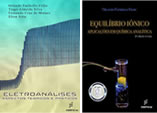
José Vinicius Martins Lab. Specialist at the Chemistry and ICP Lab., Inst. Geosciences, USP, SP, BRA Karen Kenlderi de Lima Augusto PhD student at the Dept. Chemistry, UFSCar, SP, BRA Melina Borges Teixeira Zanatta Environmental Studies Center, UNESP Rio Claro, SP, BRA Michely da Silva Sousa Master's student at UFPI, Teresina, PI, BRA Books: "Equilíbrio iônico: Aplicações em Química Analítica.” By: Fatibello-Filho, O. “
Érico M. M. Flores has a permanent position at Federal University of Santa Maria/Brazil (since 1991), performing research and teaching activities as a Titular Professor. He was the Director (2010-2012) and vice-Director (2008-2010) of Analytical Chemistry Division of Brazilian Chemical Society. He has experience in analytical chemistry, ultrasound and microwave applications, development of methods for sample preparation, speciation analysis and quality control of environmental samples, pharmaceutical and other industrial products using atomic spectrometry and ion chromatography. He is a reviewer for more than 50 international scientific journals. He is a representative member of several national and international committees as International Union of Pure and Applied Chemistry/IUPAC, International Conference of Harmonization/ICH, European Society of Sonochemistry/ESS, China-Latin America Agricultural Education and Research Innovation Alliance (CLAERIA, China), among others. He was a member of many funding institutions, editor of scientific journals as BrJAC and Ultrasonics Sonochemistry and national and international boards as Scientific Director of FAPERGS (2014-2018), and the Coordinator of the International Affairs Office of UFSM and responsible by the international cooperations with foreign nations involving scientific, technological, and academic cooperation (2018-2022), National Deliberative Council of Brazilian Pharmacopoeia (ANVISA, since 2002), Deputy Director-General of China-Latin America Agricultural Education and Research Innovation Alliance (CLAERIA, China, since 2021) and Associate Member of Analytical Chemistry Division of IUPAC (since 2020). More than 34 students have received the PhD and more than 55 have received the MS degree under his supervision. He has many patents and developed a new system of microwave induced combustion that is currently commercialized in more than 50 countries and h-index of 47 with over 9,000 citations. He has received many international awards and recognitions as the Medal Ioannes Marcus Marci from the Slovak Society of Spectroscopy and the Golden Jubilee Visiting Fellowship Endowment from the Chemical Institute of Technology (Mumbai, India).'

Vinícius Picoloto de Souza
Industrial Chemistry undergraduate student at the Federal University of Santa Maria, RS, Brazil
Book: “ICP-MS and Trace Element Analysis as Tools for Better Understanding Medical Conditions"
By Marco Aurélio Zezzi Arruda and Jemmyson Romário de Jesus (Editors)
Bruno Campos Janegitz received the Ph.D. degree from the Federal University of São Carlos (SP, Brazil), in 2012. He was a postdoctoral researcher at the University of São Paulo between 2012 and 2014. At present, he is Professor at the Federal University of São Carlos. His research interests include electroanalytical chemistry, nanostructured electrode materials and modified electrode surfaces, electrochemical sensors, and biosensors for medical and environmental analysis.

Thalles Pedrosa Lisboa, PhD
Juiz de Fora Federal University, MG, Brazil
Book: “Eletroanálises - Aspectos Teóricos e Práticos"
By Fatibello-Filho, O.; Silva, T. A.; de Moraes, F. C.; Sitta, E. (Editors)
Prof. Tamara García-Barrera holds a degree in environmental sciences and chemistry. She obtained her PhD (2005) from the University of Huelva and the habilitation as full professor in Analytical Chemistry in 2014 and the position in 2018 at the same university. Her research interests focus on food analysis and biomedicine. She is expert in the development of new analytical tools for sample preparation (miniaturized techniques, membrane-based extraction techniques) and analysis (metallomics, heteroatom-tagged proteomics, chemical speciation, metabolomics). Her current studies are related with functional foods enriched in selenium, the antagonistic action of selenium against pollutants, the mother-offspring transfer of trace metals, metabolites and microbiota and their influence on the gut(enteromammary gland)-brain axis. She has supervised 16 PhD students and is the author of ~150 scientific papers in international indexed journals. The h index is 34.

Cecilia Correia Pereira
Master's student at the Federal University of Pará, Brazil
Book: “Microbiome-Gut-Brain Axis: Implications on Health"
By Sayyed, R.Z.; Khan, M. (Editors)
Dr. Amauri Antonio Menegário is a Researcher Level II at the Centre for Environmental Studies (CEA/UNESP, Rio Claro, Brazil) and a Professor at the Graduate Program in Geosciences and Environment (Institute of Geosciences and Exact Sciences, Rio Claro), São Paulo State University (UNESP). Currently, he is the Executive Director of CEA/UNESP. Amauri obtained his Ph.D. degree in Science at the University of São Paulo (1998), Master degree in Analytical Chemistry (1994) at the University of São Paulo and undergraduate degree in Industrial Chemistry at the University of Ribeirão Preto (1988). His research interests are focused on analytical methods development mainly for biogeochemistry subjects.

Giovanni Gomes Daniele
Undergraduate student at the “Universidade Federal de São Carlos” (UFSCar), Araras, SP, Brazil
Book: “Diffusive Gradients in Thin-Films for Environmental Measurements"
By William Davison (Editor)
Dr. Cassiana Montagner is Associate Professor from Institute of Chemistry, University of Campinas (IQ-UNICAMP) in Brazil. She has experience in Environmental Chemistry, focusing on Emerging Contaminants and Microplastics acting on the following subjects: surface and drinking waters quality, aquatic ecotoxicology, sewage and drinking water treatments, and development and validation of analytical methods for the determination of trace organic contaminants in natural waters. Dr. Cassiana C. Montagner is coordinator for Environmental Chemistry Laboratory and is former director of Environmental Chemistry Division of the Brazilian Chemistry Society.

Naldirene do Nascimento Fonseca, MSc
Instituto Federal de Educação, Ciência e Tecnologia do Maranhão São Luís, MA, Brazil
Book: “Introdução à Biogeoquímica de Ambientes Aquáticos"
By Maria Lúcia A. Moura Campos
Jose Alberto Fracassi da Silva graduated in Chemistry from the Sao Paulo State University in 1996, where he also received his PhD in Analytical Chemistry in 2001. This was followed by a postdoctoral position at the Laboratory of Integrated Systems, in Polytechnic School in the University of Sao Paulo. In 2004, he obtained a position at State University of Campinas (UNICAMP), in Campinas, São Paulo, Brazil. In 2010, he was a visiting scholar at The Ralph Adams Institute for Bioanalytical Chemistry, University of Kansas (USA). At present he is Associate Professor at Chemistry Institute and the Head of the Analytical Chemistry Department. His main research interests are focused on bioanalytical applications involving oxygen and nitrogen reactive species, instrumentation and methods for capillary electrophoresis, and microfabrication strategies and materials for lab on a chip microsystems and integrated sensors.

Dr. Priscilla Oliveira
Researcher at the Center of Strategic Technologies for Northeastern Brazil - CETENE Recife, PE, Brazil
Book: “Tools and Trends in Bioanalytical Chemistry"
By Kubota, LT; da Silva, JAF; Sena, MM; Alves, WA (Eds.)
Victor G. Mihucz is currently Associate Professor at the Institute of Chemistry of ELTE - Eötvös Loránd University, Budapest, Hungary. He is an environmental analytical chemist. He obtained his PhD degree in Analytical Chemistry at ELTE, in 2002 and since 2014 he is Dr. habil. at the same university. He has authored 88 SCI articles with a Hirsch Index of 21 and 1497 independent citations He was co-editor of an Instrumental Analysis book in Hungarian. He is Editorial Board member for the Microchemical Journal and Applied Spectroscopy Reviews and Associate Editor of the Brazilian Journal of Analytical Chemistry. He has been secretary of the Scientific Committee for Analytical and Environmental Chemistry of the Hungarian Academy of Sciences since 2018, member of the Executive Board of the Hungarian Chemical Society (HCS) since 2019 and president of the Spectrochemical Association of HCS also since 2019.

Thayná Iasmim Oliveira Duarte
Grupo de Catálise e Reatividade Química
Federal University of Pelotas, RS, Brazil Instituto de Química e Biotecnologia - Universidade Federal de Alagoas, Maceió, AL, Brazil
Book: “Indoor Air Pollution"
By R M Harrison, R E Hester
By R M Harrison, R E H
Márcia Andreia Mesquita Silva da Veiga is currently an Associate Professor in the Department of Chemistry at the Faculty of Philosophy, Sciences, and Letters of Ribeirão Preto, University of São Paulo, Brazil. She has a degree in Chemistry (Federal University of Amazonas, 1991), a master’s in physical chemistry, and a doctoral in Analytical Chemistry (Federal University of Santa Catarina, 1996 and 2000), and post-Doc in Analytical Chemistry at the Institute of Chemistry, University of São Paulo (2005). Leads the research group L.Q.A.I.A. (Laboratory of Applied Instrumentation and Analytical Chemistry), and nowadays, is coordinator of the professional master’s degree in Chemistry (PROFQUI) at the University of São Paulo. She works mainly with optical techniques for trace and isotopic analysis. Her current research focus is on sample preparation procedures, detection and quantification of nanomaterials and their application, bioaccessibility assays in foods and soils, the potential of high-resolution graphite furnace molecular absorption spectrometry for elemental and isotopic analysis, detection and quantification of gunshot residues, and new technological approaches to chemistry teaching.

Mônica Lopes Ferreira
Student of Forensic Chemistry
Federal University of Pelotas, RS, Brazil
Book: “Química Forense Experimental"
By Bruno Spinosa De Martinis and Marcelo Firmino de Oliveira
Fabio Augusto is currently Full Professor of the Department of Analytical Chemistry at the Institute of Chemistry, University of Campinas (IQ-Unicamp), Campinas, SP, Brazil. Works in the area of analytical separations, and his research is based on the development of comprehensive two-dimensional gas chromatography (GCxGC) instrumentation and methodologies combining this tool with extraction microtechniques and chemometrics for bioanalytical chemistry, and metabolomic, petroleomic, forensic, and food & beverage analysis applications.

Izabel Azevedo de Lemos
Master of Public Health, Institute of Immunobiological, echnology (Bio-Manguinhos), Fundação Oswaldo Cruz (FIOCRUZ), Rio de Janeiro, RJ, Brazil
Book: “Preparo de Amostras para Análise de Compostos Orgânicos" By K.B. Borges, E.C Figueiredo and M.E.C. Queiroz (Editores)
Dr. Mesko is a full professor at Federal University of Pelotas (UFPel), and an affiliate member of the Brazilian Academy of Sciences and a titular member of the Brazilian Academy of Pharmaceutical Sciences. She has received several national and international awards, including the "L’Oréal Brazil – For Woman in Science" from L’Oréal, Brazilian Academy of Science and UNESCO 2012, JAAS-2018 Emerging Investigator Lectureship, and the “Periodic Table of Younger Chemists” to represent the element “Bromine” for celebrating 100 years of IUPAC and the International Year of Periodic Table (2019). She was the Director of Analytical Chemistry Division of Brazilian Chemical Society. She is editorial board member of the Journal of Analytical Atomic Spectrometry. She has presented national and international invited lectures, published more than 100 peer reviewed international papers, patents and book chapters in these fields. She has experience in the development of methods for food, pharmaceutical, and biological analysis using ion chromatography and atomic spectrometry techniques.

Hyrlam Sousa Ferreira
PhD in Chemistry at the Federal University of Bahia (UFBA), Salvador, BA, Brazil
Book: “Microwave-Assisted Sample Preparation for Trace Element Determination" 2nd Edition By Érico Flores (Editor)
Prof. Dr. Pablo Roberto Richter Duk is Full Professor at the University of Chile and current Academic Director of the Faculty of Chemical and Pharmaceutical Sciences (FCPS) at the University of Chile. He has been the Director of the two Internationalization projects of the FCPS (periods 2016–2018 and 2020–2022).

Prof. Dr. Eduardo S. Chaves
Atomic and Mass Spectrometry Laboratory, Dept. of Chemistry, Federal University of Santa Catarina, Florianópolis, SC, Brazil
Book: Analytical Sample Preparation with Nano- and Other H
This webinar aims at presenting the major points in Analytical Quality by Design, focusing in Design of Experiments methods for analytical method development in liquid/supercritical fluid chromatography, seeking complete chromatographic separation. Moreover, other chemometrics methods such as curve resolution will be introduced for situations when the complete chromatographic separation cannot be achieved.

Marinara Andreola
Master's Student in Chemistry
Federal University of Rio Grande do Sul
Book: “Como Fazer Experimentos: Pesquisa e Desenvolvimento na Ciência e Indústria"
By Benício B. Neto, Ieda S. Scarminio,
Prof. Dr. António O. S. S. Rangel is a Full Professor at the “Escola Superior de Biotecnologia, Universidade Católica Portuguesa” (ESB-UCP), Porto, Portugal. Presently, he is President of the Scientific Board of ESB-UCP and member of the Directive Board of the Research Centre for Biotechnology and Fine Chemistry, CBQF.

Giovanni Gomes Daniele
Federal University of São Carlos (UFSCar)
São Carlos, SP, Brazil
Book: Advances in Flow Injection Analysis and Related Techniques
By Spas D. Kolev, Ian D. McKelvie (Editors)
Prof. Dr. Thiago R.L.C. Paixão received a BSc (2001), MSc (2004), and Ph.D. (2007), followed by a postdoctoral fellowship between 2008 and 2009 working with electronic tongue devices at the Institute of Chemistry of the University of São Paulo. He was then appointed as an Assistant Professor at the University Federal of ABC where he stayed for two years. In 2011, he was hired as an assistant professor at the University of São Paulo and promoted to Associate Professor in 2016. At the beginning of 2018, he was nominated as an affiliate member of the Brazilian Academy of Science as a promising young researcher. His fields of interest include chemical sensors, paper-based devices, and electronic tongues aiming at in-field analytical applications.

Prof. Dr. Willian Toito Suarez
Department of Chemistry
Federal University of Viçosa
Viçosa, MG, Brazil
Book: Materials for Chemical Sensing
By Thiago R.L.C. Paixão, Subrayal M. Reddy (Eds.)
Obtained his bachelor’s degree by the Federal University of Alfenas and his doctorate by the University of Campinas. Currently, he is Associate Professor at the Faculty of Pharmaceutical Sciences, Federal University of Alfenas. He was Associate Dean of Research and Post-Graduate Studies, and Coordinator of Research at the Federal University of Alfenas from 2015 to 2018; member of the Health Sciences Advisory Chamber of FAPEMIG from 2015 to 2017; has oriented 14 scientific initiation students, 15 master´s degrees, 4 doctorates, and supervised 2 post-docs; has 69 papers accepted/published in peer-reviewed journals, in addition to about 1155 citations and H factor 20 (source: Web of Science); holds 5 patents, two of which have been granted; he is the author of 7 book chapters and editor of the book “Preparo de Amostras para Análise de Compostos Orgânicos” (Publisher: LTC, Grupo Gen, 2015).

Profa. Dra. Camila Boldrini Nascimento
Centro Universitário Fundação Santo André
Santo André, SP, Brazil
Book: “Preparo de Amostras para Análise de Compostos Orgânicos" By K.B. Borges, E.C Figueiredo and M.E.C. Queiroz (Editores)
J. L. Capelo, PhD, gets his bachelor’s degree in chemistry by the University of Santiago de Compostela (Spain), his doctorate in Analytical Chemistry by University of Vigo, UVIGO (Spain, award to the best doctoral thesis 2002) and his Post-Doc from the Instituto Superior Técnico de Lisboa (Portugal). His academic career comprises assistant to staff and lecturer at the UVIGO; research fellow at the Chemistry Department of the New University of Lisbon, CD-FCT-UNL, research fellow at the CD-UVIGO, and assistant professor at the CD-FCT-UNL.

Izabel Azevedo de Lemos
Immunobiological Technology Institute
Oswaldo Cruz Foundation
Rio de Janeiro, RJ, Brazil
Book: Emerging Sample Treatments in Proteomics
By José-Luis Capelo-Martínez (Editor)
George L. Donati is currently an Associate Research Professor at the Department of Chemistry of Wake Forest University, teaching analytical chemistry courses and directing a research program in analytical instrumentation for trace element analysis. George received his M.Sc. in Analytical Chemistry at the Federal University of São Carlos (SP, Brazil, 2006) and PhD in Chemistry at Wake Forest University (Winston-Salem, NC, EUA, 2010). His research at WFU focuses on the development of portable instrumentation and novel calibration methods for spectrochemical analysis, as well as the use of atomic spectrometry and advanced statistical tools to diagnose and understand diseases.

Dr. Heldiane Souza dos Santos
Environmental Analytical Chemistry Laboratory (LQAmb)
Polytechnic School
Pontifical Catholic University, RS, Brazil
Book: Elemental Analysis: An Introduction to Modern Spectrometr
Wendell Karlos Tomazelli Coltro is currently Associate Professor and Director of the Institute of Chemistry at the Federal University of Goiás, Brazil. His work is mainly focused on analytical instrumentation, microfabrication, microfluidics, electrophoresis, electrochemical detection and forensic chemistry. Recently, he has been working on the microfabrication of analytical and microfluidic tools by 3D printing.

Dr. Marcos Aurelio Gomes da Silva
Dept. of Chemistry, Federal University of Juiz de Fora
Juiz de Fora, MG, Brazil
Book: Forensic Analytical Methods
By Thiago R. L. C. Paixão, Wendell K. T. Coltro, Maiara Olive
Marco Tadeu Grassi is graduated in Chemistry, with a Masters in Analytical Chemistry and a PhD in Environmental Chemistry from UNICAMP and a post-doctorate from the University of Delaware (USA), where he was a guest professor in the Graduate Program in Environmental Engineering and Water Resources. He was a visiting professor at the Federal University of Maranhão and since August 1998 he has been a professor in the Department of Chemistry at the Federal University of Paraná, where he currently serves as the department head for the second time. He is a member of the editorial board of Química Nova and of the Brazilian Journal of Analytical Chemistry, review editor of Frontiers in Environmental Chemistry and reviewer of several scientific journals.

Prof. Dr. Gilberto Abate
Dept. of Chemistry, Federal University of Paraná
Curitiba, PR, Brazil
Book: Princípios de Química Ambiental
By James E. Girard
Editora LTC
Maria Montes-Bayón is a Full Professor in Analytical Chemistry in the Department of Physical and Analytical Chemistry at the University of Oviedo (Spain) since December 2017.

Prof. Dr. Márcia Andrea M. S. Veiga
Department of Chemistry, University of São Paulo (USP-FFCLRP), Ribeirão Preto, SP, Brazil
Book: Metallomics: The Science of Biometals
By Marco Aurélio Zezzi Arruda (Editor)
Renato Zanella has been working since 1994 in the Department of Chemistry at the Federal University of Santa Maria, RS, where he is Full Professor since 2014. His research projects are mainly focused on the development of analytical methods for the residue determination of pesticides, veterinary drugs, pharmaceuticals and emerging pollutants in food and environmental samples by GC-MS/MS, LC-MS/MS, SPE and QuEChERS, among others. He is the Coordinator of the Laboratory for Analysis of Pesticide Residues (LARP) and leader of the Research Group of the Research Center for Chromatography and Mass Spectrometry (CPCEM) created in 2001, being responsible for several projects in the area of residues and contaminants in food, environmental and industrial samples.

Dr. Carla Toledo Neira
Analytical and Environmental Chemistry Division
Material Chemistry Department
Faculty of Chemistry and Biology
University of Santiago, Chile
Book: Preparo de Amostras para Análise de Co
